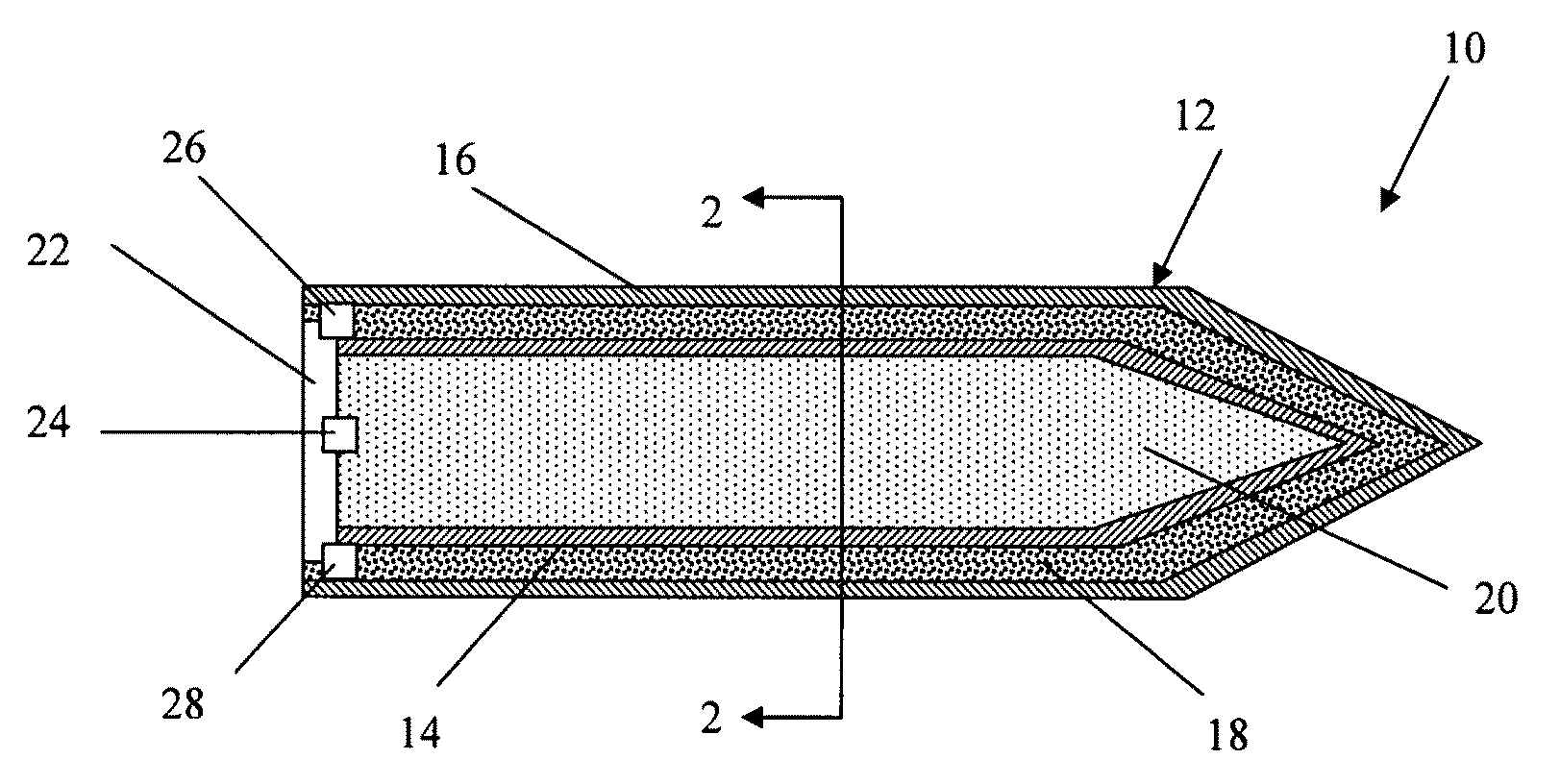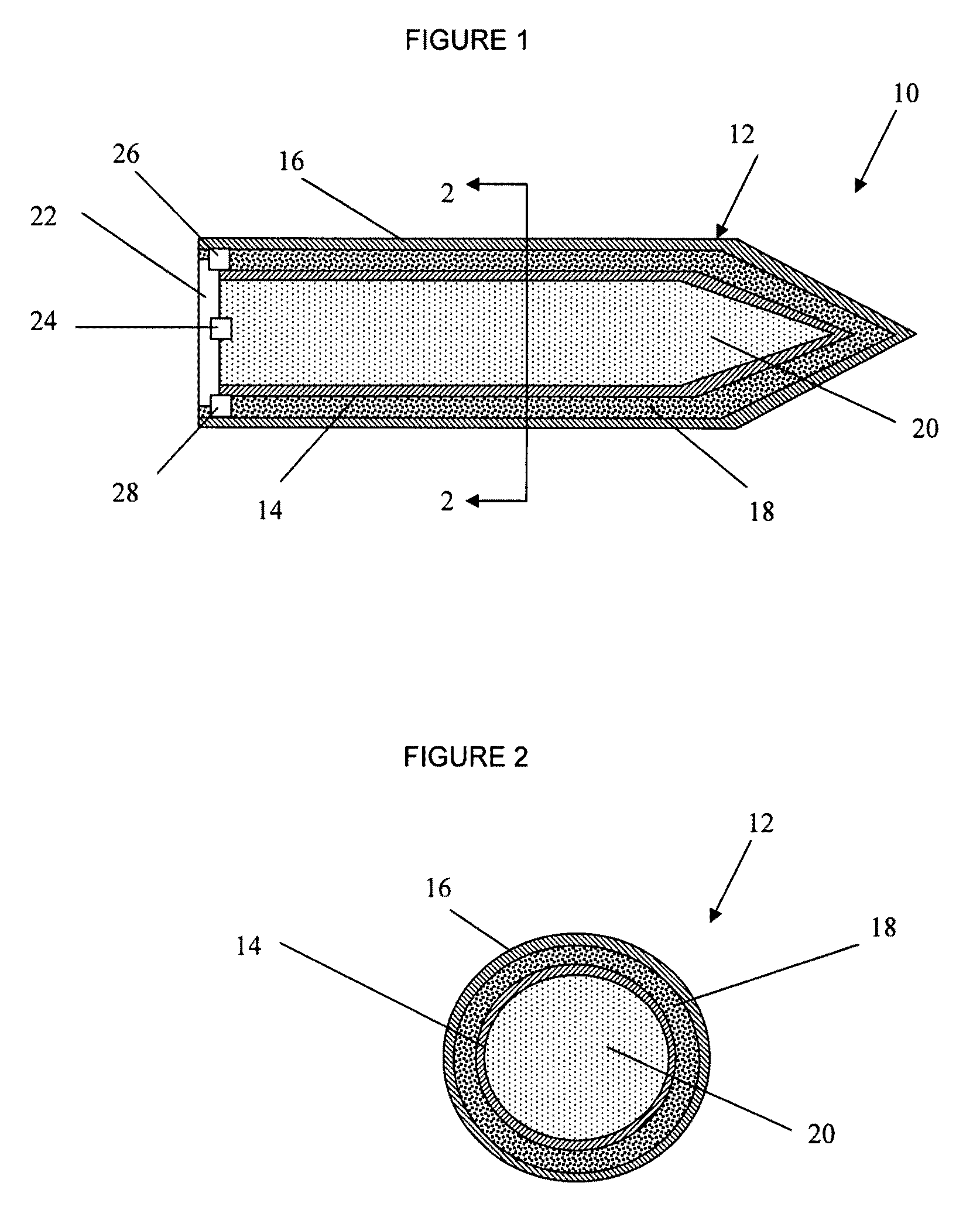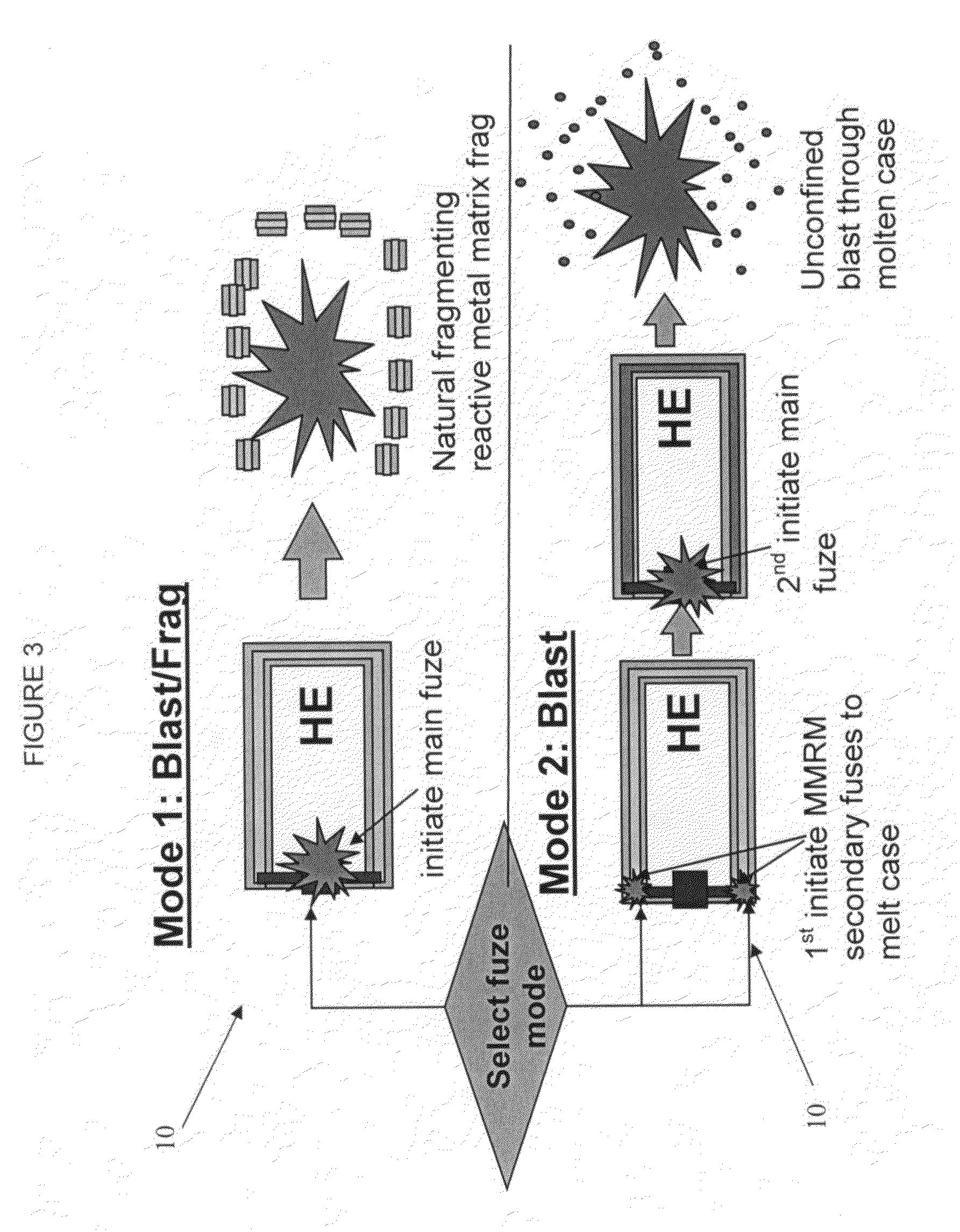Selectable effect warhead
a warhead and selectable technology, applied in the field of weapons, can solve the problems of collateral damage, unintended damage or destruction of life or property near the target, and the material is more vulnerable to fragments and blast overpressure, so as to reduce the collateral
- Summary
- Abstract
- Description
- Claims
- Application Information
AI Technical Summary
Benefits of technology
Problems solved by technology
Method used
Image
Examples
Embodiment Construction
[0016]FIGS. 1-2 illustrates an exemplary munition 10 formed according to one embodiment of the present invention. As illustrated, the munition 10 may be in form of a warhead comprising a casing 12 carrying an explosive payload 20. The shape of the casing 12 is not limited to the illustrated embodiment, and may have any suitable geometry and / or size. The casing 12 may optionally include an inner and / or outer liner or shield 14 and / or 16, respectively. The liner(s) or shield(s) may be provided as a thermal shield. The liner(s) and / or shield(s) can be formed from any suitable material(s). By way of non-limiting example, the shields can be formed from a thermoplastic. Thermoplastics such as polytetrafluoroethylene (PTFE) or polyetheretherketone (PEEK) can be utilized. The linear(s) and / or shield(s) 14, 16 serve to, at least in part, prevent the transfer of thermal energy to the payload 20 of a magnitude that could cause unwanted detonation thereof.
[0017]The main component of the casing ...
PUM
 Login to View More
Login to View More Abstract
Description
Claims
Application Information
 Login to View More
Login to View More - R&D
- Intellectual Property
- Life Sciences
- Materials
- Tech Scout
- Unparalleled Data Quality
- Higher Quality Content
- 60% Fewer Hallucinations
Browse by: Latest US Patents, China's latest patents, Technical Efficacy Thesaurus, Application Domain, Technology Topic, Popular Technical Reports.
© 2025 PatSnap. All rights reserved.Legal|Privacy policy|Modern Slavery Act Transparency Statement|Sitemap|About US| Contact US: help@patsnap.com



